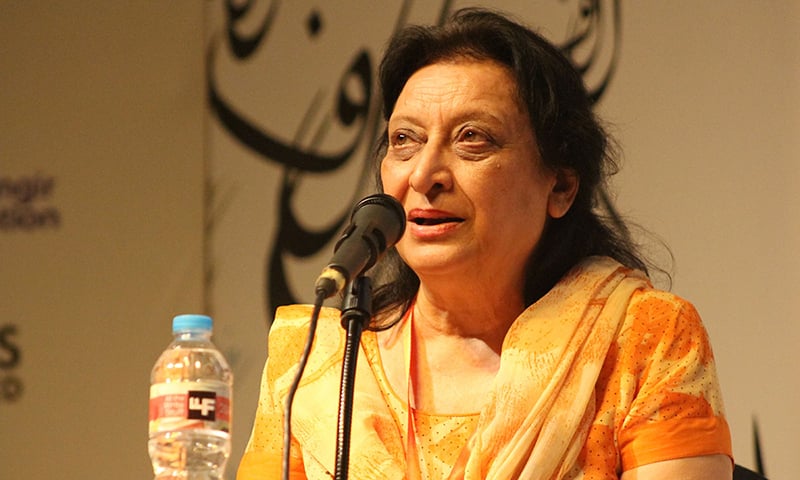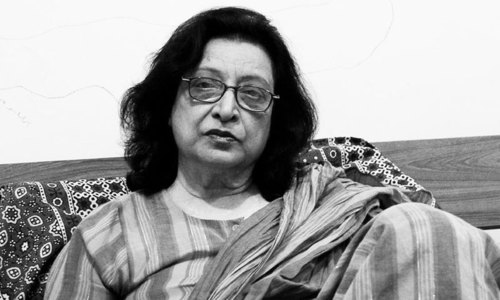Renowned poet and prose writer Fahmida Riaz, who passed away a day earlier from prolonged illness, was laid to rest on Thursday afternoon in Lahore.
The deceased's funeral prayers, held at Jamia Masjid Askari I in Lahore, were attended by scores of prominent individuals, including literary figures and personalities from the showbiz.
Among those in attendance were poets Amjad Islam Amjad and Fatima Hasan, artist Saleema Hashmi, human rights activist I.A. Rehman and PPP's Chaudhry Manzoor.

Riaz was later laid to rest at the Bahar Shah graveyard.
The eminent progressive writer, who was also hailed by many as a pioneer in feminist literature, had been suffering from illness for the past few months. She had come from Karachi to Lahore to pay her daughter a visit.
Born into a literary family of Meerut (India) in July 1946, Fahmida Riaz, in addition to her literary pursuits, always played an active role in social and political activities.
Apart from authoring more than 15 books on fiction and poetry, she was also a human rights activist. Her first literary work was published in 1967, titling ‘Pather Ki Zuban’. Her collection of poetry includes ‘Dhoop’, ‘Pura Chand’, ‘Admi Ki Zindagi’ and more. Her novels include ‘Zinda Bahar’, ‘Godaavari’ and ‘Karachi’. She was famous for her revolutionary and contrary to tradition poetry.
When Badan Dareeda, her second collection of verse, appeared in 1973, she was accused of using erotic and sensual expressions in her poetry. The themes prevalent in her verse were, until then, considered taboo for women writers.
Fahmida Raiz also contributed to the Urdu literature as a translator. Whether it was Ismail Kadare from Albania or Maulana Rumi, she was knowledgeable about world fiction and classical poetry.
She lived in self-exile for over six years in India when former military dictator Gen Zia-ul-Haq ruled over Pakistan.
She was appointed managing director of what was then the National Book Council of Pakistan during the first PPP government (1988-90). In Benazir Bhutto's second tenure as prime minister, she became associated with the ministry of culture.
In 2009, she was appointed the chief editor of the Urdu Dictionary Board in Karachi.
















































